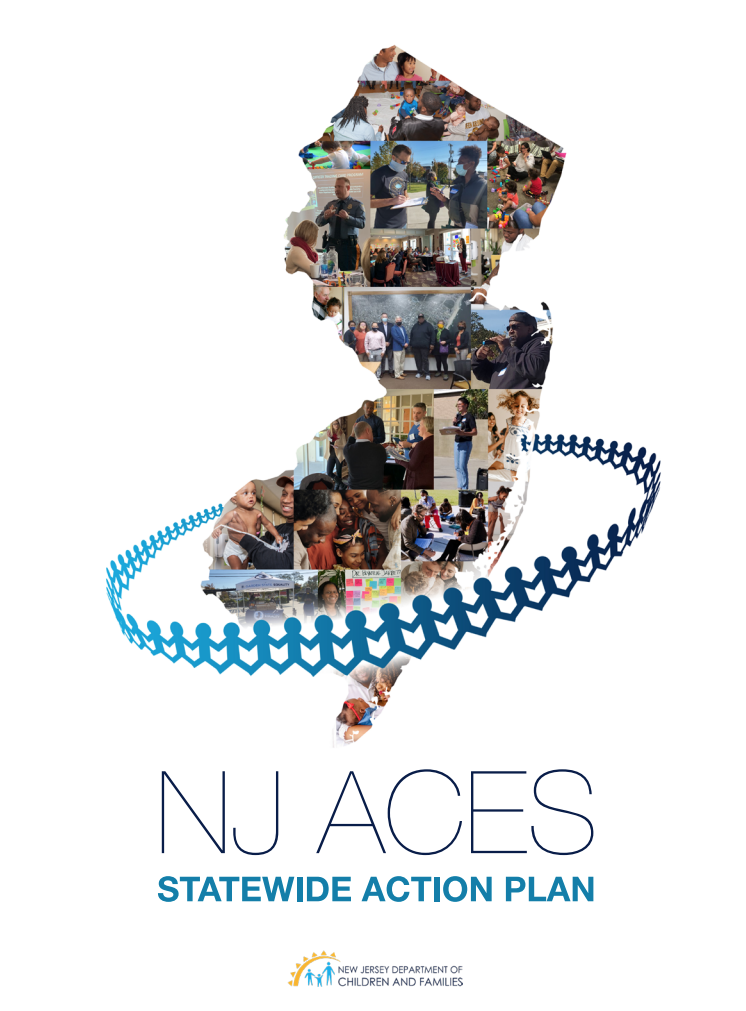Nicholson Foundation-Supported Statewide ACEs Action Plan Outlines Ambitious Roadmap for Change
With the February 4 release of a statewide action plan, New Jersey passed a major milestone on its way to becoming a nationwide a leader in protecting and helping children and adults heal from Adverse Childhood Experiences, or ACEs—stressful and traumatic events occurring before age that can cause lifelong health and social challenges. The Nicholson Foundation has been working with the New Jersey Department of Children and Families (DCF), the Burke Foundation, and the Turrell Fund on ACEs-related mitigation activities since 2018, and to date has invested $3.5 million toward this effort, including development of the action plan.
 The newly released ACEs action plan—created in collaboration with DCF, the three foundation partners, and the Center for Health Care Strategies—will be implemented by the New Jersey Office of Resilience, led by Executive Director Dave Ellis.
The newly released ACEs action plan—created in collaboration with DCF, the three foundation partners, and the Center for Health Care Strategies—will be implemented by the New Jersey Office of Resilience, led by Executive Director Dave Ellis.
“The action plan is the culmination of several years of intensive work, much of it informed by what was learned from people in communities most impacted by ACEs. The implementation phase that will follow represents the next key step in this major public-private partnership to make New Jersey one of the best states in the nation for raising children,” said Arturo Brito, Executive Director, The Nicholson Foundation.
Among the reasons this work is so critical and why the action plan is so urgently needed, ACEs affect more than 40 percent of children in New Jersey across all socio-economic strata. At the same time, rates of exposure to adverse experiences are higher in the state for children of color and for children living in poverty. Research shows that ACEs can be neutralized by positive experiences and loving relationships, and that with compassionate, nurturing support, people can achieve resilience—the process of adapting and overcoming in the face of adversity.
To achieve that goal, the plan contains five core strategies that aim to greatly reduce ACEs in New Jersey:
1. Achieve Trauma-Informed and Healing-Centered State Designation
- Establish The New Jersey Trauma-Informed Care Technical Assistance Center to coordinate state efforts to prevent, treat, and heal from ACEs and inform state policies and budgets related to childhood trauma; and
- Develop a Trauma-Informed Care Readiness assessment for non-governmental organizations, community-based organizations, and state agencies interested in earning a trauma-informed designation. The assessment will determine organizational readiness and staff knowledge about trauma-informed/healing-centered care and ACEs in order to determine required levels of technical assistance.
2. Conduct an ACEs Public Awareness and Mobilization Campaign
- Survey New Jersey residents to determine priority populations for a strategic communication campaign; and
- Maintain the NJ Resiliency Coalition, a virtual learning community for ongoing stakeholder education and collaboration between trauma-informed/healing-centered organizations across the state.
3. Conduct an ACEs Public Awareness and Mobilization Campaign
- Maintain Community-Driven Policy and Funding Priorities
- Review ACEs prevention and healing services throughout New Jersey’s 21 counties and subsequently develop a needs assessment; and
- Encourage public and private partners to increase the number and quality of trauma-informed/healing-centered programs available to individuals most impacted by ACEs.
4. Provide Cross-Sector ACEs Training
- Offer evidence-based ACEs training programs for community members and a variety of child-and family-facing sectors to improve literacy in ACEs and the impact of trauma; and
- Prioritize ACEs training for community members, including resource parents, educators, law enforcement officers, and mental health providers; and
- Work with stakeholders and community members to identify the next most appropriate population(s) for ACEs training, building on existing statewide efforts.
5. Promote Trauma-Informed and Healing-Centered Services and Supports
- Promote the use of a multi-generational, trauma-informed/healing-centered approach to prevent ACEs and foster resilience throughout New Jersey through early childhood single point of entry programs; and
- Survey nonprofit organizations, human services, and early childhood providers about utilization of services; use findings to gauge the community’s perception of and relationships with providers; and measure outcomes through data sharing with New Jersey departments of Children and Families, Education, Health, Human Services, and managed care entities.
By working together to implement, monitor, and evaluate the action plan, New Jersey will reduce the effects of toxic stress and create a brighter future where children thrive in supportive relationships and healthy environments.
